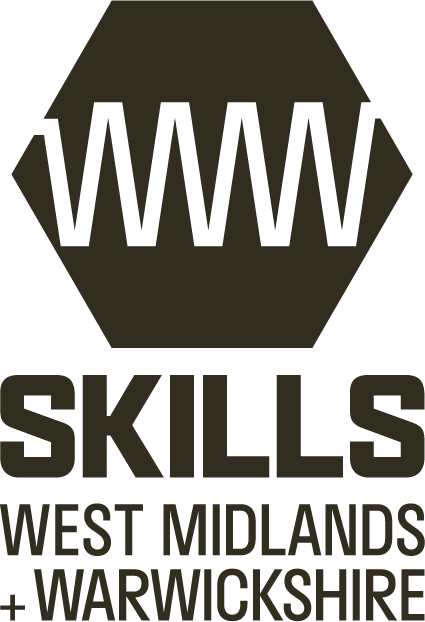Dagmara’s rewarding apprenticeship journey with BMet kick starts her career in engineering
Here we find out more about the ambitious and talented apprentice, who has successfully progressed through her apprenticeship, and has just achieved a First-Class Degree in Manufacturing Engineering!
Let’s get to know Dagmara in a 10-question interview…

Please can you start by summarising your career journey at BMet?
“In September 2020, I started a BTEC Level 3 in Advanced Manufacturing Engineering at BMet. After completing the course the following year, I secured a Degree Apprenticeship in Manufacturing Engineering with HydraForce.
The apprenticeship included three main qualifications. The first was an EAL Level 2 Diploma which focused on hands-on technical skills such as panel wiring, mechanical maintenance, machining and tool use – all of which proved highly valuable in my role at HydraForce. The second was a Foundation Degree (Level 5), which provided the academic foundation needed to progress to a full Bachelor’s Degree.
Both the EAL Diploma and the Foundation Degree were delivered by BMet during the first two years of my apprenticeship. After completing the Foundation Degree, I progressed to a Level 6 top-up course at Birmingham City University. I graduated this summer with a first class Bachelor’s Degree with Honours in Manufacturing Engineering.”
Why did you choose to study what you did?… and tell us a bit about “your journey” prior to coming to BMet…
“In secondary school, I didn’t have a clear career direction. I chose my subjects based on what I enjoyed, rather than what would benefit me later on. It wasn’t until Year 11 that I decided I wanted to pursue a career in engineering. Unfortunately, just weeks before my GCSEs, the pandemic hit. Like many students, I was left uncertain about the future, stuck with rushed predicted grades that most of us didn’t believe to be reflective of reality.
I was adamant about doing an apprenticeship, but with a disrupted job market, my predicted grades and unrelated GCSEs, this proved to be very difficult.
I chose to study a BTEC at BMet because I already knew I wanted to go into engineering, and the course looked like a solid way to build the technical knowledge and hands-on experience I was missing. The content was directly relevant to the industry and it gave me the foundation I needed to move forward.
After completing the course, I was successful in several apprenticeship interviews and received multiple offers. I eventually secured a role that aligned well with my interests and long-term goals.
I chose to focus on Manufacturing Engineering because it offered the broadest and most well-rounded skillset. I’ve always preferred variety in my work. I like being hands-on, but I also enjoy problem-solving, process improvement and understanding how things work from start to finish. Manufacturing gave me the opportunity to explore multiple areas like design for manufacture, production processes, quality control and automation, all within one field. Rather than specialising too early, I wanted to build a foundation that would allow me to work across different roles and industries. Manufacturing felt like the most versatile and future-proof route, giving me both technical depth and the flexibility to adapt as technology and industry needs evolve.”
How have you found your time at BMet and did it cater to your needs?
“My time at BMet has been part of a longer journey toward becoming a well-rounded engineer. As someone who came into further education with a clear interest in engineering but limited technical background, the structure of the courses gave me a starting point. Over time, I built up a working knowledge base of various engineering principles that I could apply in practice as part of my apprenticeship.
The college offered access to essential qualifications that are recognised in the industry, which was important for progressing onto university-level study and securing meaningful workplace responsibilities.
In addition to the academic content, it also gave me exposure to working with others who were on similar career paths. This not only provided a great networking opportunity, but also helped me develop my communication and teamwork skills – things that are just as important in industry as technical ability.”
What do you think of the support that you’ve received at BMet?
“I started at BMet just after the Covid restrictions were lifted, which was a challenging time for everyone. On top of that, I struggled personally during the first year of my foundation degree.
Despite this, several tutors went out of their way to offer support. I appreciated the understanding and flexibility, and personal approach shown during difficult periods. My tutors wanted me to succeed and without their support I don’t think I would have been able to get to the point that I am now at.”
What have you particularly enjoyed during your time at BMet?
“The most enjoyable part of my time at BMet was the practical modules offered in all three of my qualifications. I’ve always found that to be the most effective way to learn. Whether it was using machining, soldering, working with tools, or learning how to design, program or control basic systems, those moments helped build my confidence and made the subject matter feel more real and relevant.
I also found value in working alongside other students who had different strengths and backgrounds. Being part of a cohort with varied experience made for interesting discussions and gave me a broader view of how different people approach the same challenge.”
What would you say has been your favourite achievements/memories to date?
“My experiences at BMet have played a big part in shaping the direction I’ve taken since. One of the most lasting impacts has been how it sparked my interest in sharing knowledge and supporting others. Over time, that’s grown into something I actively apply in my work. I regularly run mini-training sessions and informal workshops, helping less experienced colleagues and new hires. It’s become a core part of how I operate and it’s something I really enjoy.
Both my professional achievements and my focus on helping others and pushing for improvement was also recognised outside of work. Last year, I was named a Highly Commended finalist at the Multicultural Apprentice of the Year Awards (Pearson). Gaining national recognition for my contributions and work ethic is my biggest achievement. I made a point of crediting BMet as part of that success, because my time here helped lay the groundwork and gave me opportunities I was able to build on later.”
Have you had any key highlights with any industry recognised organisations?
“In November 2021, I had the honour of being invited to attend the official opening of the Greater Birmingham & Solihull Institute of Technology (GBSIoT). I was invited as a student representative from BMet, alongside a small group of other students. During the visit, we were given a tour of the new facilities, including the advanced engineering and digital labs. It was a great insight into how the institute aims to support technical education and close the skills gap in key industries like manufacturing and automation.
One of the highlights of the day was having the chance to speak directly with the Education Secretary at the time, Rt. Hon. Nadhim Zahawi. We discussed the importance of apprenticeships, hands-on experience and how engineering education can be made more accessible and relevant to young people. It was an encouraging moment to be able to represent not only my own views, but those of other students and apprentices and highlight how real-world skills and academic learning can go hand-in-hand.”
What do you feel about being a female in a male dominated industry?
“First of all, I am very grateful for all the amazing women who came before me and paved the way so that I could do the job I love. I think we have come a long way! Many engineering companies are striving for a better balance and equality when it comes to women in the work force.
For me, women in engineering mean a lot more than just equality. Diversity in engineering is incredibly important, that’s how we are able to make design decisions that are smarter, better and safer for everyone.
For me personally, working in a male dominated industry was daunting and overwhelming at the start. However, I soon realised that it’s not quite as bad as I thought. Most of the guys at my company are incredibly helpful and supportive. I’m not afraid to ask for help because I know I will be met with understanding.
There’s also a healthy sense of competition, which is a fun perk of the job if you enjoy a challenge. I think we really push ourselves and each other to do our best, and that energy makes the job more rewarding.”
What are you doing now and what are your hopes for the future?
“After completing my Foundation Degree at BMet, I went on to achieve a First-Class Bachelor’s (Hons) Degree in Manufacturing Engineering. Alongside my academic work, I’ve had the opportunity to work on several high impact projects, including complex system integration and bespoke machine design. I’ve led a small team, introduced new products into production and even built custom machinery from the ground up – experiences that have helped me grow technically and professionally.
I’m now approaching the end of my apprenticeship and I plan to move into a Project Engineer role upon completion. I’m especially interested in roles where I can take ownership of delivering end-to-end solutions. Longer term, I hope to specialise in automation or advanced manufacturing technologies and pursue professional registration with the IET, eventually reaching chartership.”
What advice would you give to other students wanting to attend BMet? Or that are currently here?
“Take ownership of your learning and don’t be afraid to ask questions or push for support when you need it. BMet can offer some valuable opportunities, but it’s up to you to make the most of them.
Stay organised and build good relationships with your tutors, they can be incredibly supportive if you’re open and honest about your goals and struggles. Finally, make the most of any practical sessions, they’re often the most useful and directly transferable to the workplace.”



